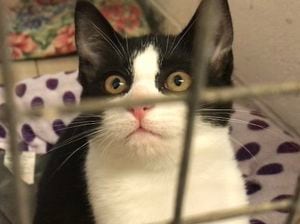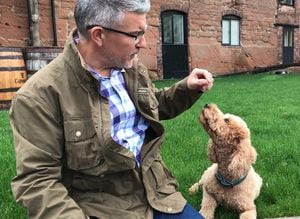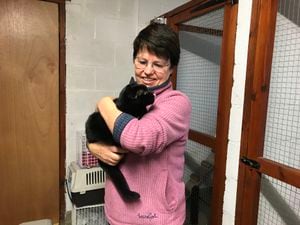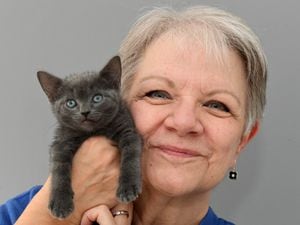Pandemic pets: How the Covid crisis has had a major impact on our four-legged friends
It has been a challenging couple of years with Covid-19, which has seen many people turning to their furry friend for support.

Last year there was a pet ownership boom, with 3.2 million households in the UK acquiring a pet and 17 million homes becoming responsible for a pet's welfare, according to PFMA data.
A University of York study also reported that more than 90 per cent of respondents said that their pet helped them emotionally with the lockdown.
But while it has been acknowledged that owning a pet can be good for a person's mental health and wellbeing, concerns have been raised about the impact on pets themselves.
Here we look at three major ways the Covid crisis has taken its toll on animals.
Dog behaviour
Nick Jones MA has worked as a dog behaviourist for approximately 20 years and runs his own company – Alpha Dog Behaviour Ltd – based in Bewdley.
He has noticed significant changes to his workload since Covid-19 restrictions lifted and reflected on some of the changes he has noticed:
Nick suggested that for dogs suffering with separation anxiety – who may have difficulty being left alone – the key is to make short departures and build on this.
He also suggested providing a dog with a subject of interest can be a good distraction while an owner is away i.e. a stuffed toy or a ruffle mat.
Nick recommended using the 'traffic life method' for socialisation where an owner may move between 'green' or 'amber' scenarios until their dog can comfortably manage a 'red' (the most difficult) type of environment.
There are organisations who are providing advice and support to owners too:
Supply and demand
"The cost of puppies has risen dramatically into their thousands," Nick also pointed out.
According to a recent Pets4Homes report, the average puppy price in September last year was £1,912, up from £817 in September 2019.
This increase in puppy prices Nick said can cause issues because people are prepared to pay a good deal of money for their puppy.

"What makes this all the worse" Nick explained, "is that the quality of the puppy isn't necessarily that good.
"The puppy may have been bred under poor circumstances, not adequate thought on the genetic makeup from the parents and how then that will affect the offspring litter.
"And so we could see genetical behaviour issues in those litters," Nick said.
To find out more about Nick's work visit alphadogbehaviour.co.uk.
Cats in need
Yvonne Jennison who runs Northwood Grange Cattery in Whitchurch, in partnership with RSCPA Shropshire, has noticed an increase in cats coming into her care as well as a national need for spaces.
"The RSPCA rang me and said could we take extra because they were inundated with cats in 2020," Yvonne said.
Prior to Covid, Yvonne was seeing approximately 20 kittens coming into the cattery and over the last year this figure has risen to around 70.

Yvonne said that she had noticed a rise in "needy cats" as well – ones with complications who may need extra care – including cats with stress cystitis, overgrooming caused by stress, cats that were not eating and had not been deflead or wormed.
"It's stressful for a lot of owners as well that they have to hand their cats over, and its through no fault of their own, either their economics or circumstances change," Yvonne said.
Zoe Hinton, from RSPCA Shropshire, said: "I guess as well, lots of people during lockdown didn't manage to get their cats neutered so we've had a lot more kittens in the past two years than we'd previously had."
Cats Protection's Cats And Their Stats (CATS) report revealed that 1.3 million cats in the UK (12 per cent) are not neutered.
Sarah Reid, head of neutering at Cat’s Protection, said: “We don’t have any formal stats on the increasing cost of neutering, although obviously we are aware that costs have risen in line with everything else. We work with vet practices across the UK to help people on low incomes to neuter their pets.
“We would always recommend people properly assess what a pet is going to cost them before they acquire one, and that they prioritise neutering."
To find out how to adopt a cat in Shropshire go to rspca.org.uk/findapet.
Now that restrictions have eased, with people returning to work in the office and spending more time outdoors, there may be some uncertainty on how the future will look for pandemic pets.
Dogs Trust reported a post-'Freedom Day' spike in owners considering adoption for pets.
In July, the charity published data which revealed a 182 per cent increase in traffic to 'Giving up your dogs' pages since pre-pandemic levels ( July 2021 vs February 2020).
Owen Sharp, Dogs Trust chief executive, said: “As owner’s circumstances change, puppies grow into boisterous ‘teenagers’ and the country unlocks, many owners are being forced to reconsider the place in their lives for their pet.
“The needs of dogs and their owners, however, are constantly changing. As the ‘new normal’ settles in, it is vital that we understand exactly what support we can offer to keep our pets in their loving homes.”





